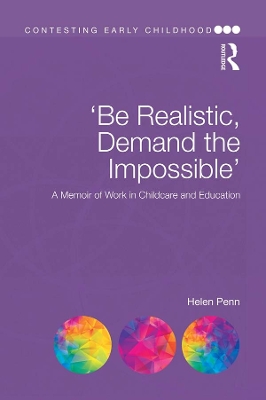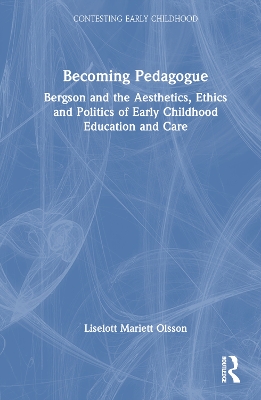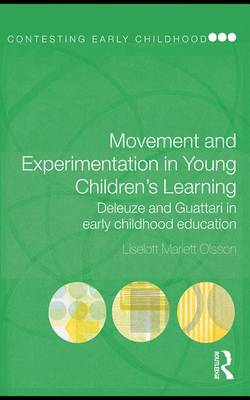Contesting Early Childhood
4 total works
An astute exploration of the complexities of working and learning in the field of Early Childhood Education and Care, Professor Helen Penn tells of her experiences of working as a teacher, social worker, campaigner, researcher and writer, and so reflects on the perennial and complex issues which shape this expanding field.
Mapping the author’s career from the mid-sixties onward, ‘Be Realistic, Demand the Impossible’ is a tribute to the progress that has been made in Early Childhood Education and Care over the past 70 years and is a celebration of those who have acted on their principles to articulate and remedy hidden suffering. A first-hand commentary on adult-child relations, poverty, working with families and engaging with democracy and inequality, Penn’s narrative reconstructs her past and, in doing so, produces a social history that records the various shifts in policy and public attitudes which she has witnessed. The author recognizes the collective effort and teamwork involved in working within organizations, as well as the constraints and tensions such organizations can create. She comments on the wider political system and assesses the particular pattern of educational inequality and oppression which afflicts the UK.
One of the best known and most respected figures in her field, Penn provides a unique perspective on change as well as offering a framework for understanding, assessing and working within the field of Early Childhood Education and Care. Insightful and frank, witty and funny, this book will be a valuable read for students, academics, researchers and practitioners involved in this field.
Constructions of Neuroscience in Early Childhood Education
by Michel Vandenbroeck, Jan De Vos, Wim Fias, Liselott Mariett Olsson, Helen Penn, Dave Wastell, and Sue White
This book explores and critiques topical debates in educational sciences, philosophy, social work and cognitive neuroscience. It examines constructions of children, parents and the welfare state in relation to neurosciences and its vocabulary of brain architecture, critical periods and toxic stress.
The authors provide insight into the historical roots of the relationship between early childhood education policy and practice and sciences. The book argues that the neurophilia in the early childhood education field is not a coincidence, but relates to larger societal changes that value economic arguments over ethical, social and eminently pedagogical concerns. It affects the image of the child, the parent and the very meaning of education in general.
Constructions of Neuroscience in Early Childhood Education discusses what neuroscience has to offer, what its limitations are, and how to gain a more nuanced view on its benefits and challenges. The debates in this book will support early childhood researchers, students and practitioners in the field to make their own judgements about new evolutions in the scientific discourse.
Investigating the politics of childhood, education and what a teacher does, this book creates a space for teachers to define and perform their profession in relation to its historical and intellectual roots; to see themselves as political actors and not mere executors of something they cannot even question. By returning to the origins of education, this book considers its role in today's society by reuniting philosophy and pedagogy. Using these new perspectives as well as practical examples of teacher's work, this book will give students, teachers and researchers tools for critiquing simplified ideas of the teacher, and provides inspiration to experiment with alternative ways of working.
Movement and Experimentation in Young Children's Learning
by Liselott Mariett Olsson
In contemporary educational contexts young children and learning are tamed, predicted, supervised, controlled and evaluated according to predetermined standards. Contesting such intense governing of the learning child, this book argues that the challenge to practice and research is to find ways of regaining movement and experimentation in subjectivity and learning.
Vivid examples from Swedish preschools - involving children, teachers, teacher students and educators and researchers - are woven together with the theories of French philosophers Gilles Deleuze and Felix Guattari, bringing important new concepts and practices to the early childhood field. This ground-breaking book investigates three key areas:
the need to focus on `process' rather than `position', as positioning of any kind, such as learning goals or developmental stages, hampers movement.
working with methods that recognise science's inventiveness and productivity, demonstrating how the events in which children take part can remain open ended and in movement.
Re-considering the dichotomy between the individual and society as a `cause and effect' relationship, which immobilizes subjectivity and learning and hinders experimentation.
Challenging dominant ways of thinking, Movement and Experimentation in Young Children's Learning offers new possibilities for change and provokes a re-evaluation of the educational system's current emphasis on predetermined outcomes and fixed positions.
This book provides researcher and students with a sound theoretical framework for re-conceptualising significant aspects of movement and experimentation in early childhood. Its many practical illustrations make this a compelling and provocative read for and student taking course in Early Childhood Studies.



